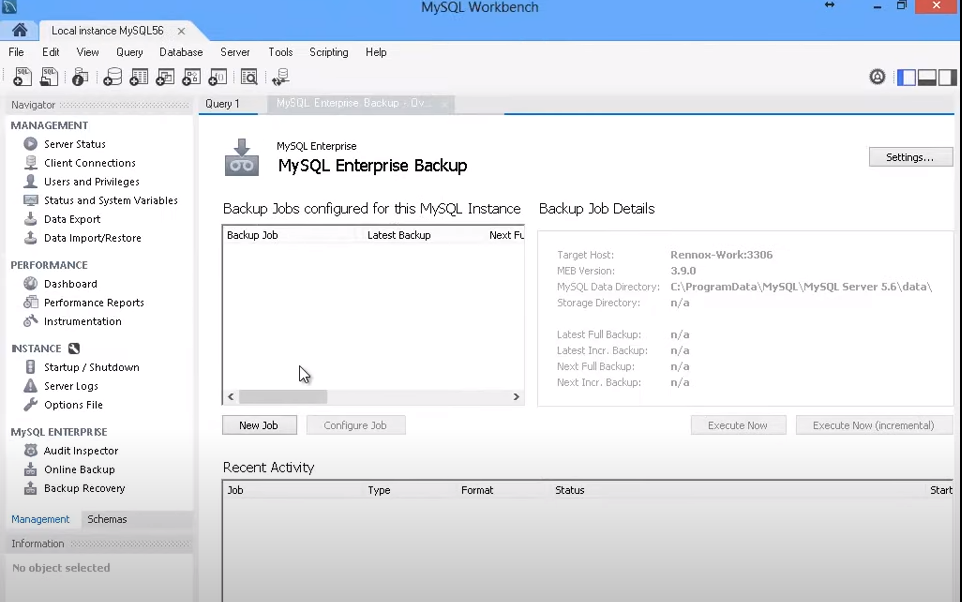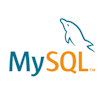MySQL
About MySQL
MySQL Pricing
MySQL offers a free trial for new users, after which the software is available across 4 commercial editions. Pricing and functionality are outlined below. MySQL Cluster Carrier Grade Edition Subscription (1-4 socket server): starts at $10,000 per year MySQL Cluster Carrier Grade Edition Subscription (5+ socket server): starts at $20,000 per year MySQL Enterprise Edition Subscription (1-4 socket server): starts at $5,000 per year MySQL Enterprise Edition Subscription (5+ socket server): starts at $10,000 per year MySQL Standard Edition Subscription (1-4 socket server): starts at $2,000 per year MySQL Standard Edition Subscription (5+ socket server): starts at $4,000 per year MySQL Classic Edition (only available for ISVs/OEMs)
Starting price:
$2,000.00 per year
Free trial:
Available
Free version:
Available

Most Helpful Reviews for MySQL
1 - 5 of 2,058 Reviews
Frank
Computer & Network Security, 11 - 50 employees
Used more than 2 years
OVERALL RATING:
5
Reviewed October 2021
MySQL
Ravindu
Verified reviewer
Information Technology and Services, 11-50 employees
Used daily for more than 2 years
OVERALL RATING:
5
EASE OF USE
5
VALUE FOR MONEY
5
FUNCTIONALITY
5
Reviewed July 2019
A thought on MySQL
As currently I have developed inventory system, clinic system, an backend application for a private company to manage huge no of memberships and ads, and a UK company for manage Business Name , Limited company, trademark and domain registrations and renewals. All of these used with mysql its those are running smoothly. Never had any headaches as through sql queries can manipulate easily and had fast responses for even complex queries and for huge no of data Frameworks used are spring boot and laravel.
PROSKnown and used by most people as most secure and reliable relational database management system. Accompanies 99.99% uptime. Nothing to fears as open source. Can have millions of helps through community. Offers a wide scope of high accessibility like cluster servers master slave replication. Provides high performance even for large volume projects. Growing and improving frequently. Best for cloud applications and big data applications. Supports by huge no of frameworks.
CONSRed Hat Enterprise Linux, openSUSE, Fedora, Slackware Linux etc moved to MariaDB.
Reason for choosing MySQL
Relational Database, Free of charge, unlimited help from community. Light weighted, Supports by huge no of frameworks.
Aleksandr
Verified reviewer
Computer Software, 501-1,000 employees
Used daily for more than 2 years
OVERALL RATING:
4
EASE OF USE
5
VALUE FOR MONEY
5
FUNCTIONALITY
5
Reviewed April 2021
Great overall but has some very important caveats.
Mysql as any other tools has it's advantages and downsides. It may be fast, ACID-compatible, it may serve as memory cache. It has some dark corners and sometimes may hang on complex queries, or even corrupt the data (this is really rare case, but I faced it more than 10 times during my experience). Consider your scenario carefully. And always, always, ALWAYS make backups.
PROSThere a whole world of documentation, best practice, books on mysql. It can be found on nearly any cloud, system, paas. It is really fast (on MyISAM), support transactions (InnoDB), may perform as in-memory cache (memory), or even CSV (never use this one except for testing or reports). Deploy and set up takes next to no time, it consumes very little resources. Actually I feel it is hard to write a review on MySql because over decades of extensive usage it become the standard de-facto, even LAMP has (M) for MySQL. It is a mature if, well known RDBMS with tons of extensions and forks (not sure I may name them here). It is worth to mention though that MySQL is a default backend storage for a whole number of software. MySQL is compliant to SQL standard though with some differences. It may require some changes to your codebase but still, they should not be critical. What will really surprise you is that ORDER by lacks "nulls first/last" clause and that collates may surprise you. In a somewhat unpleasant way. Window functions, virtual tables, temporary tables are here as well and trust me - this is quite important matter, something that is a vital part of any DB. You will find a lot of web and standalone management tools to work both with server and data, some of them are free, others are not, chose yours.
CONSFirst and biggest cons is that MySQL is not suitable for big amount of data. It always had and still have troubles performing complex joins. Database may get corrupted under some scenarios when significant selections is performed same time as other clients perform batches of inserts/updates (basically, there is a long lasting bug in memory management). Transactions are available in a single engine InnoDB and it is much slower than MyISAM. Worst thing is that in scenarios with multitenant databases with somewhat mediocre load MySQL starts to leak memory. This i a known well-issue, and there is no cure at this moment, you have to reboot the database instance. This is simply a disaster. Performance insight is something that could enjoy some more love. While Mysql is compatible with most of standard SQL, there are still some hard to explain differences.
Reason for choosing MySQL
Mysql is still used in some of our projects, but we are on our way to switch to another RDBMS for the reasons I described above.
keerthi
Computer Software, 501-1,000 employees
Used daily for more than 2 years
OVERALL RATING:
5
EASE OF USE
4
VALUE FOR MONEY
5
CUSTOMER SUPPORT
5
FUNCTIONALITY
5
Reviewed May 2024
Good beginner database product
MySQL is very user friendly and the queries used are easy and well suited for beginner and small scale applications
CONSI am not a fan of the UI of MySQL as it’s pretty basic
Anonymous
1 employee
Used daily for more than 2 years
OVERALL RATING:
3
EASE OF USE
4
VALUE FOR MONEY
5
CUSTOMER SUPPORT
2
FUNCTIONALITY
3
Reviewed April 2019
Almost all my sites run on MySQL
I hardly think about MySQL because that is how it functions - quietly and in the background 24/7. But MySQL is an totally ESSENTIAL part of my online presence, as my websites would immediately cease functioning without MySQL. It is that important! While it does its job most of time, if there are errors in MySQL for whatever reason, then to repair the problem can become a bit expensive. Apart from this small risk, MySQL is one of those "must-have" software if you run any independently hosted websites online.
PROSMySQL is the standard database software used by virtually all the PHP-based scripts for database creation and functioning. It is a standard add-on software for most webhosts as part of the cPanel plan. As long as you are not hacked, the database software works quietly in the background 24/7 and delivers your website to the world. As an "add-on" software it is free in that sense (or may be part of my monthly hosting fees), but this is a trivial point. MySQL is like a set-and-forget kind of software, and indispensable to nearly all webmasters.
CONSThe database is not very efficient, and this often leads to errors, if some script overloads it or if your website is hacked and compromised. If there is too much traffic, things also can break down. As anything database related is hard to repair, it is best to get an expert on MySQL, who can be expensive, to fix any issues in the database. Many additional plugins create further tables or rows in MySQL which remain there for life even if the plugin is removed later on. This leads to bloat in the database.





